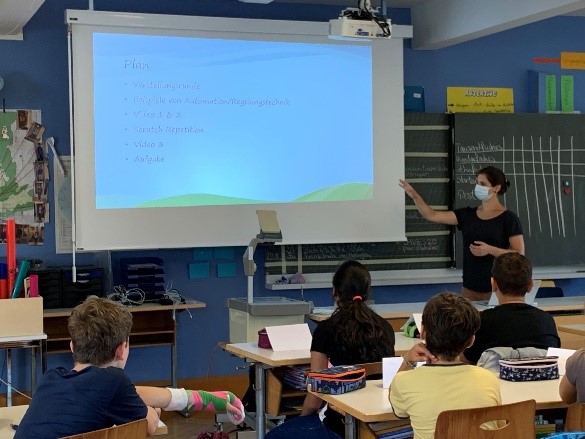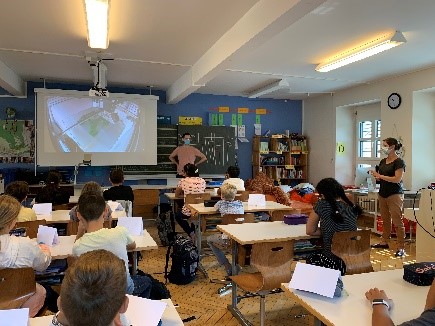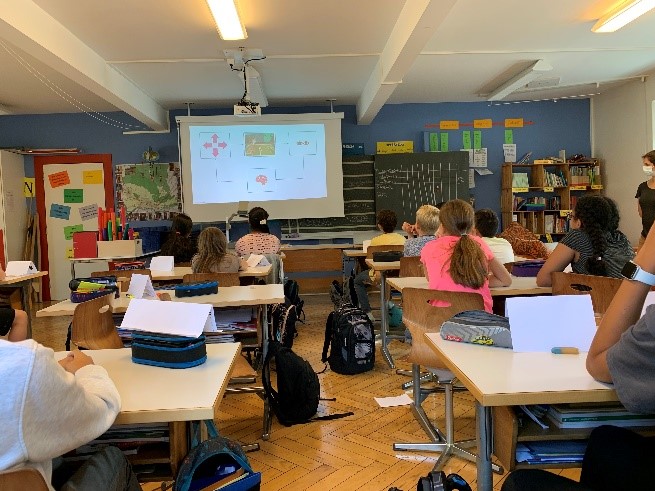Eine Einführung in die Welt der Automatisierung
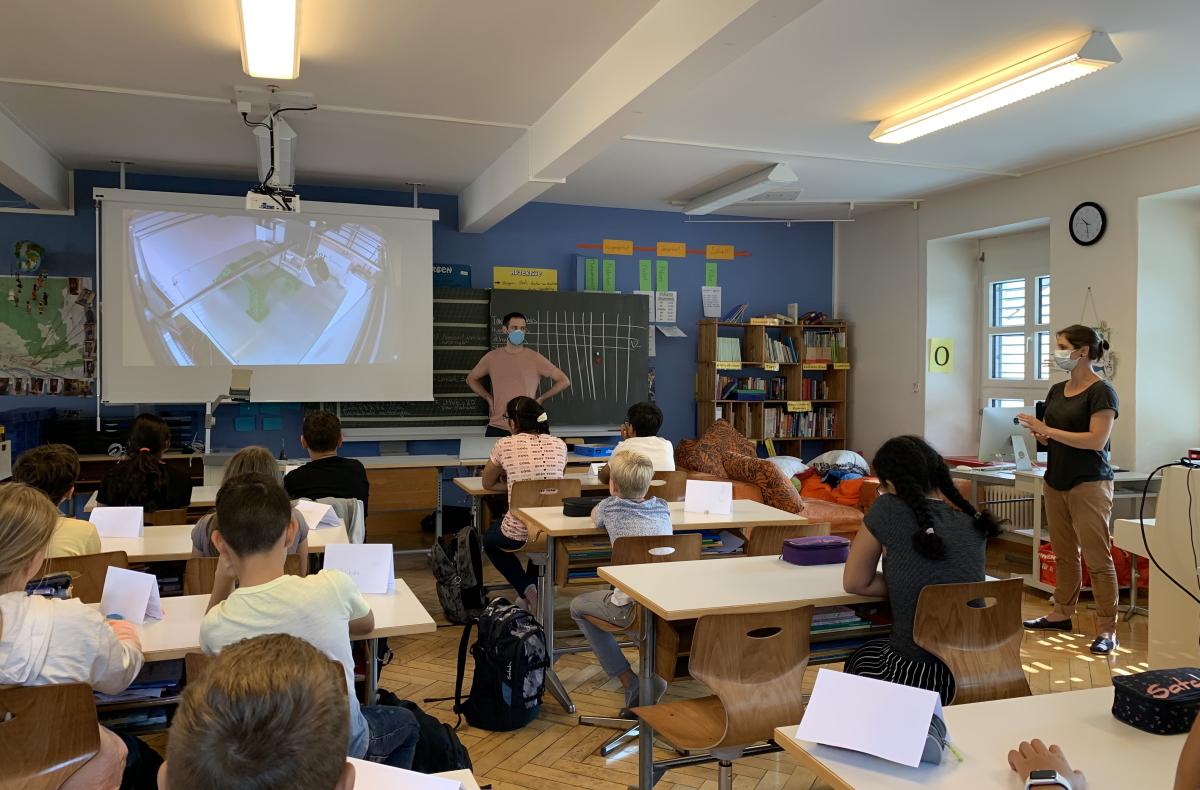
Das Gebiet der Automatisierung weist wie viele andere technischen Fachgebiete ein erhebliches, teilweise historisch bedingtes Ungleichgewicht zwischen den Geschlechtern auf. Um das Ausmass des Ungleichgewichts zu bewerten, haben wir statistische Daten auf internationaler und nationaler Ebene gesammelt. Daten des Staatssekretariats für Bildung, Forschung und Innovation (SBFI) weisen darauf hin, dass dieses Ungleichgewicht in den MINT-Fächern (Naturwissenschaften, Technik, Ingenieurwesen und Mathematik) bereits in der Schul-Oberstufe existiert ist: Weniger als ein Viertel der Schülerinnen wählen ein MINT-orientiertes Studium. Diese Beobachtung deutet darauf hin, dass es eine grundsätzliche Voreingenommenheit bei der Wahrnehmung des Ingenieurwesens in der Gesellschaft gibt.
Was ist ein GIC Workshop?
Unsere Strategie der Chancengleichheit wurde entwickelt, um diese Voreingenommenheit zu beseitigen und junge talentierte Frauen zu ermutigen, in den Bereich der Technik einzusteigen, wobei der Schwerpunkt auf der Automatisierung liegt. Zu diesem Zweck wurde in der Schweiz eine Workshopreihe "Girls in Control" mit zwei Hauptzielen geplant. Das erste Ziel war es, der jungen Generation das Gebiet der Automatisierung aus einer geschlechtsneutralen Perspektive näher zu bringen und zu zeigen, wie Mathematik in realen Anwendungen eingesetzt werden kann, um Probleme zu lösen und zu gesellschaftlichen Verbesserungen beizutragen. Das zweite Ziel bestand darin, den Bereich von der geschlechtsspezifischen Voreingenommenheit zu befreien, vor allem durch das Aufzeigen von Arbeitsmodellen, bei denen beide Geschlechter auf ein gemeinsames Ziel hinarbeiten.
The Workshop "Girls in Control" is sponsored by the IFAC Foundation and has been designed by Margret Bauer and Steffi Knorn, two professors in control in Germany.
The wish is to provide the new generation with the possibility of an open, tolerant, creative study and work environment.
The workshop consists of two main parts: a series of videos presenting the concept of control through concrete examples, followed by visual programming exercises in Scratch to teach the basic aspects of control.
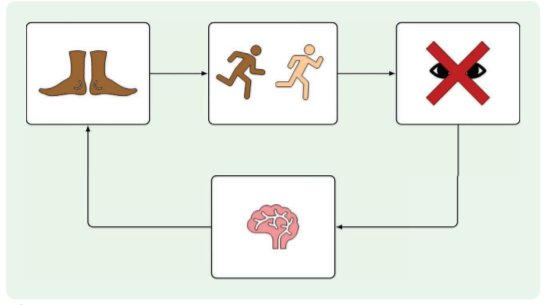
|
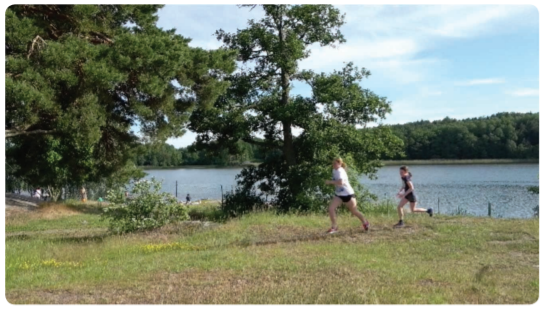
|

|
NCCR Automation researchers meet 12-year old pupils
The first workshop has been hosted by the 6th grade class of Frau Seibert in the Obersiggenthal school, Aargau on the 20.08.2021. The entire class of 20 pupils (9 boys and 11 girls) participated in the workshop moderated by Genia Escher and Michael Schneeberger, both engineers and researchers in the field of automation at the FHNW.
The pupils were provided with tablets and worked in pairs during the programming session. The teacher organised the logistics and prepared the pupils for the workshop.
The workshop started with Genia and Michael introducing themselves and sharing details about their students careers in Switzerland, offering examples of possible study paths towards becoming an engineer.

|
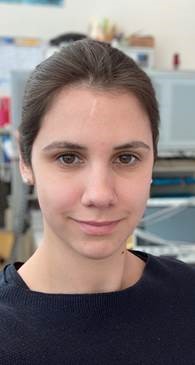
|
Genia and Michael then presented the field of Automation and its pervasiveness in day-to-day life starting from energy systems, transportation, medicine TC scan, manufacturing applications, and some new exciting applications like a 3D-printing machine. Application domains were chosen to be appealing to both genders.
|
|
|
|
|
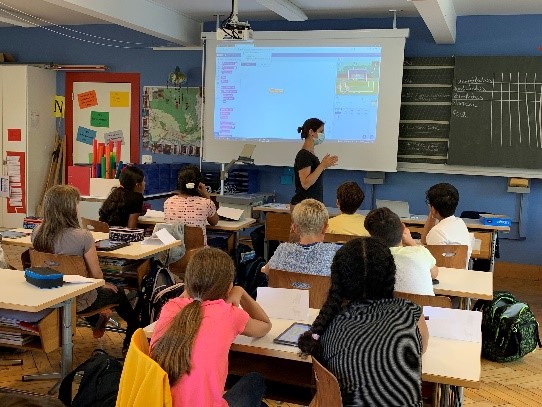 |
Genia and Michael then presented the core material through videos demonstrating simple examples of control loops: to control the water temperature in a shower, or playing catch where trajectory tracking problem where both sensing (vision, actuation (running) and controller (brain)) play a role in achieving the goal of catching the friend. The concept of derivative has been demonstrated in the catch game where instead of tracking pointwise the position of the target (friend running), the student could try to look at the direction and anticipate the move of his/her friend.
After the video the students worked in pairs and implemented a small animated program in Scratch where a cat follows, i.e. tracks, a moving ball using a proportional control concept. Michael and Genia supported the students during the programming phase. The pupil showed various degree of engagement, many created a complex program, implemented variables and played with extra features.
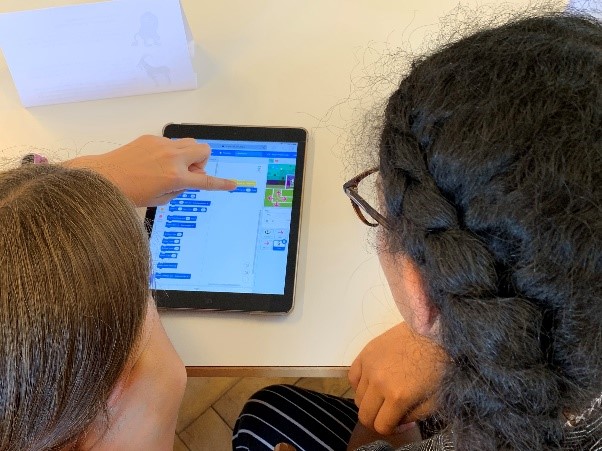 |
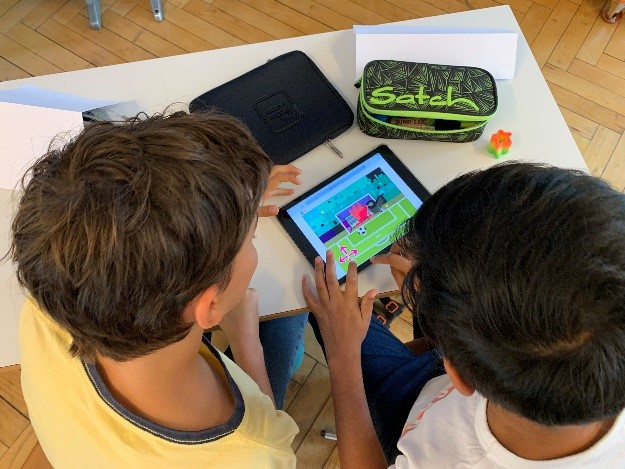 |

Finally, the workshop was concluded with some more examples of real-world applications.
Based on the feedback collected by the teacher, the workshop has been well received and enjoyed by most of the children who, driven by their natural curiosity, were interested to connect mathematical concepts with real-life applications. The topic was overall perceived as accessible to both genders and more than half the children said they had learn something. The main drawback mentioned by the pupils was the slow Internet connection. Foremost, we hope to have offered a small window in the world of Automation that can inspire boys and girls who enjoy mathematics to join the next generation of automation engineers.
What is next?
Based on the feedback and outcome we consider this first workshop a successful event that, thanks to the teacher feedback, her didactic expertise and experience, provided us with valuable insights on how to further improve following workshops. One of them being the name of the workshop, which will change to "Kids in Control" to be more inclusive.
We will now implement those inputs and contact other schools to organise continue this series. Do not hesitate to contact us if you would like to participate in those workshops, either as a researcher or as a teacher.
